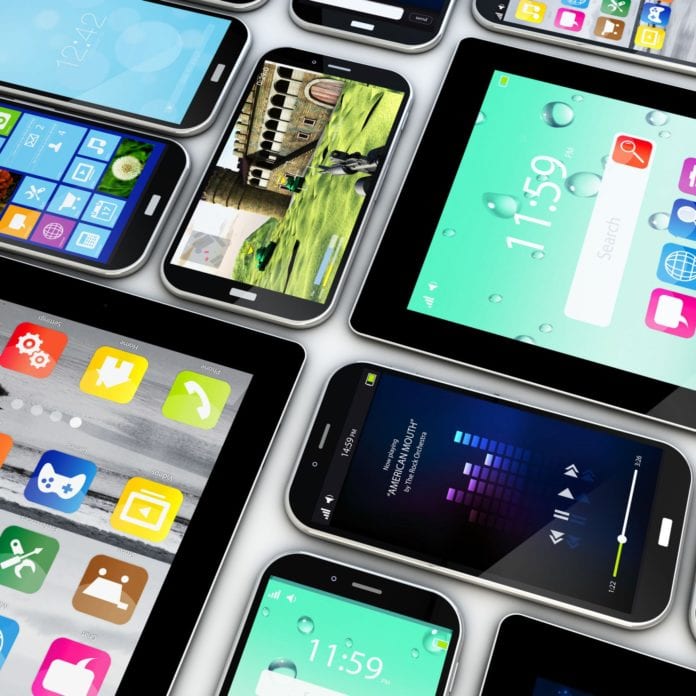As devices’ price tags rise and customers use them for longer periods before trading up, the secondhand mobile device market is flourishing. That presents an opportunity for device manufacturers to expand their installed base and for carriers to offer lower-priced device options to attract or retain customers — but it also raises issues around the security of the personal information on devices.
According to recent research from B-Stock, which is a business-to-business marketplace for trade-in and overstock mobile devices, the used phone market is worth about $25 billion now and is “growing faster than the primary market.” Counterpoint Research has found that the refurbished smartphone market grew by 13% in 2017, compared to growth of just 3% for the new smartphone market during the same period, and IDC anticipates that the secondary mobile market will be worth $50 billion by 2022.
Apple, for one, has stepped up its efforts around the used device market, with a more aggressive and generous buyback program that it began promoting late last year to give current iPhone users credit toward the purchase of new devices. B-Stock said that the iPhone X is the most-sold used smartphone model with “record levels of trade-in X devices being sold wholesale to secondary-market buyers in the U.S. and China,” and that iPhone X volumes in its marketplace are up 53% since January 2018. iPhone X, the company added, can fetch as much as $500 if it’s in mint condition and then be sold for 55-60% of retail cost, which it said is 20% higher than any other model in history, at 14 months post-launch. Bank of America Merrill Lynch has said that the installed base of iPhones has achieved a 15% compound annual growth rate in recent years, largely due to double-digit growth in the used iPhone market rather than the sales of new devices.
The average mobile phone will be used by two to three people before it is scrapped, B-Stock said — which results in significant concerns around protecting consumer data on such devices. Interestingly, it has also found that large carriers, the company said, “are moving more devices to B2B channels for resale vs. refurbishment and selling B2C.”
“When it comes to smart devices, a primary concern of the initial user is the safety and security of their data; consumers understandably need reassurance that details like financial and personal information will no longer be accessible from the device they are trading in,” said Sean Cleland, VP of mobile for B-Stock.
A recent survey of 5,000 people in five countries, commissioned by data erasure and device diagnostics company Blancco, found that 66% of those surveyed expressed concern about how their personal data would be handled once they traded a device in — and Blancco’s survey found that almost half of participants said they would seek legal advice if they were to find out that a device they had turned in still had identifiable data on it — a huge liability. Reducing that risk means not only testing and validating the data scrubbing, but have an audit trail that documents how it was handled before it was sold, according to Russ Ernst, EVP for public and technology at Blancco, which started out handling IT assets that needed to be scrubbed of information prior to entering the secondhand market, and got into doing the same for mobile devices about five years ago. Europe’s new GDPR regulation around data control, maintenance and deletion means that proper data cleansing “is very much a concern across the board, across all out businesses — IT administration or mobile or enterprise or data center customers,” he said.
Blancco’s report showed that although 58% of respondents said they had not yet returned a device, 64% were willing to do so if they were assured that more stringent data management practices were in place. In the U.S., 35% of consumers said that they had never traded in a mobile device because they hadn’t been offered the service (that figure was nearly 50% in Germany). About half of respondents wanted stronger regulations around device-based personal data. Unlike the IT space, Ernst said, “we have yet to see some really strong or tight data control around that in the mobile industry. As this continues to mature, it’s going to happen at some point.” And data privacy isn’t just about erasing photos, videos or texts, he noted, but making sure that a user’s location data, for example, is also scrubbed.
“A factory reset is not going to be good enough,” Ernst said, comparing that to dropping files into the “recycle bin” on a PC — where they may not be accessible to the user any longer, but they’re still recoverable via easily obtained software. A formal carrier or device OEM buyback program “adds a lot of trust,” Ernst said, and Blancco “foresees continued growth in the secondhand market.”
“I would say that OEMs and carriers see this as a growth opportunity for them,” he added. “They can take advantage of the resale value of that device and not have it go somewhere else, eBay or Amazon or Gazelle.” But, he went on to say, the full value of the secondhand market for operators, OEMs and third-party logistics providers will only be realized if end-users trust in the process by which devices are collected and move on to a second life.
“Our study makes it clear, [that] device collections will accelerate only if operators, OEMs and 3PLs remain fiercely committed to data management and device erasure best-practices,” Ernst said.

